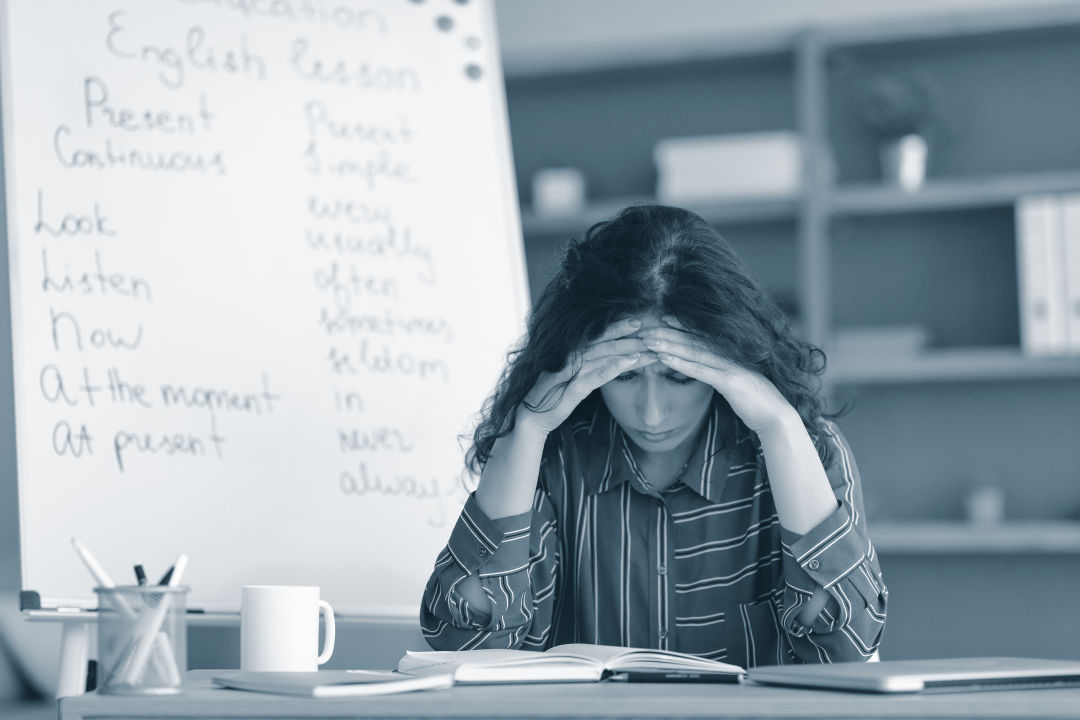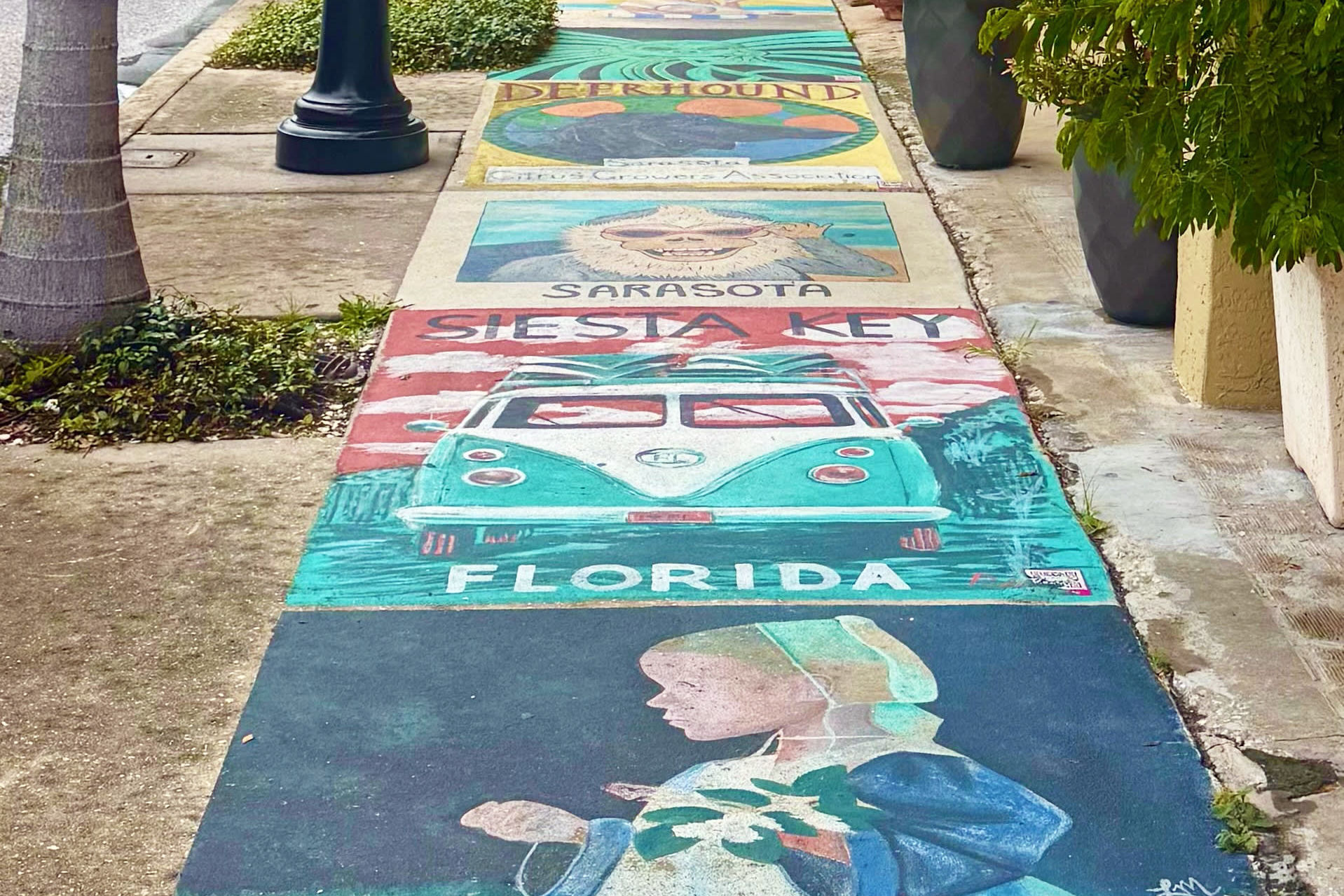Faced With New State Education Laws and Policies, Many Teachers Feel Distrusted

Many Sarasota County teachers are feeling the brunt of new state legislation.
Even before this year's state legislative session, teachers in Sarasota County had a tough job. In addition to working to educate young students, in recent years they've been tasked with taking on remote learning responsibilities, managing public health policies launched because of the Covid-19 pandemic and coping with new security measures put in place because of the 2018 mass school shooting in Parkland, Florida—plus, the added stress of the one earlier this year in Uvalde, Texas.
Now, as a new school year begins, some teachers say they feel like proverbial guinea pigs for new statewide measures that were signed into law this summer, and their morale is low. That’s according to a recent anonymous survey issued by the political organization We the Parents. Three hundred and fifty-one Sarasota County teachers participated in the survey, which was launched on July 24 and closed on Aug. 5. In it, teachers expressed feelings of being framed as the enemy and that public education is under attack.
In addition to regular prep work, teachers this year will have to follow controversial and untested new legislation, like the Parental Rights in Education Act (known popularly as the "Don't Say Gay" bill) and the Stop WOKE Act (which was recently blocked from taking effect by Tallahassee U.S. District Judge Mark Walker, who stated it violated the First Amendment and is "impermissibly vague").
The Parental Rights law prohibits classroom instruction on sexual orientation and gender identity for students in kindergarten through third grade, "or in a manner that is not age appropriate or developmentally appropriate for students in accordance with state standards.” The law also requires school staff members to alert parents about “critical decisions affecting a student’s mental, emotional, or physical health or well-being.”
Critics say the law's broad language could open school districts and individual teachers to lawsuits from parents who believe any conversation about LGBTQ people or issues is “not age appropriate.” They say the measure could also put students in harm’s way, particularly when it comes to the use of preferred pronouns and names.
Booker High School teacher Gail Foreman has been teaching for 29 years.
“It's offensive," she says. "We know that LGBTQ youth are at a much higher rate of suicide, yet we're singling them out and we can't use their pronouns of choice. If they want their name changed, we need their parent's permission. But what if a student has parents who aren't accepting and can't come out to them without being injured? How do we abide by the law and treat our students with the dignity and respect they all deserve? That's a difficult task now."
Stop WOKE, meanwhile, sets limits on how issues of race may be taught and allows parents to sue teachers and school districts that violate it." According to Kelsey Whealy, a spokesperson for Sarasota County Schools, “our leadership team is not aware of any trainings or guidance that’s been issued regarding the Stop WOKE Act at this time [any official items would be issued from the leadership team of a given district department]” and “items are still being developed as the district awaits rulemaking from the Department of Education and the necessary legal advice based on those rules.” (A request for an interview with Catherine Cocozza, the director of high school instruction and curriculum for Sarasota County Schools, was denied.)
Theoni Soublis, a professor of education at the University of Tampa and a previous Sarasota County high school teacher, says that under the WOKE Act, "students cannot be made uncomfortable by a history they did not participate in. But migration is scary. War is scary. Slavery is uncomfortable. So much of history is scary and uncomfortable."
"Teachers are nervous because an accurate picture of history will in many cases make kids 'uncomfortable,'" she says. "The intentional vagueness of the law of what is 'uncomfortable' adds to the uncertainty of how to define that."
This new school year will also include new layers of vetting for media, including books, films and even guest speakers in classrooms, along with pauses on book donations and book orders.
"I think everyone is upset and frustrated," says Meredith Spanelli, a reading specialist at Bay Haven School of Basics Plus, an elementary school in Sarasota. "From a perspective of a heavy literacy-based team like ours, we feel very much under the microscope, and it makes us feel like the public doesn't trust us. Many of us have reading endorsements and master's degrees and are highly qualified to do our jobs really well. So to be questioned about what stories we're reading, and what we do and have done well for a long time is offensive."
As a result of the new rules, Spanelli, who has been teaching in Sarasota County for 16 years, has been unable to order reading recovery books that the district has ordered in the past. The books were intended for the literacy library that teachers use to check out for small group instruction. Titles like Seagull Is Clever, Lion and the Rabbit and Lion and the Mouse would have replaced previous books that may have been lost or were student favorites, so more than one student could take them home at a time for reading practice. She says colleagues have encountered similar roadblocks.
Under the new guidelines, books must first be OKed by a School Board-approved district media specialist, a position that was cut during the Great Recession. The district is now seeking to fill that job again.
In the meantime, Whealy writes in an email, "freezing purchases and donations of all books used in school media centers and classroom libraries allows time for hiring and working through existing materials as well as time for the [Florida Department of Education] to provide rules and the district’s curriculum team to provide interpretation and additional guidance on the legislation." Whealy says the freeze is only "temporary" and may last until January 2023.
Other affected practices touch on book fairs, book orders and classroom read-alouds. According to Whealy, book fairs already scheduled for the fall will still occur, but new ones may not be set up until next spring, and orders placed through Scholastic Book Clubs can still be fulfilled, as long as the student's order form is reviewed by a parent and the books are not used in a classroom or library. Whealy says teachers have also been advised to communicate with administration officials and parents about titles they intend to read to students, but no one has been told that they cannot conduct read-alouds with students.
The state of Florida currently has around 10,000 teacher vacancies—roughly 6 percent of all teacher jobs. "Given everything going on, that number of vacancies isn't bad," says Soublis. "But I think a solution to the low morale is if we can find mechanisms, perhaps through our elected officials, that will elevate them with increases in benefits, solutions to housing and messages of trust, instead of threats."



